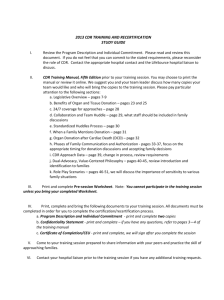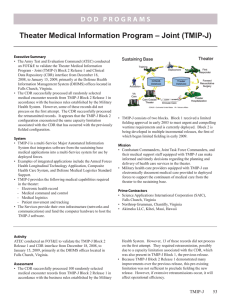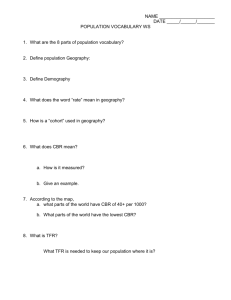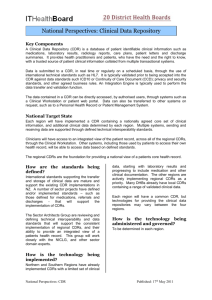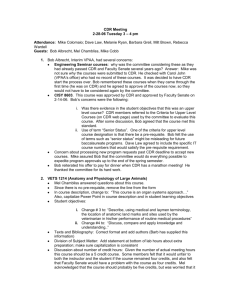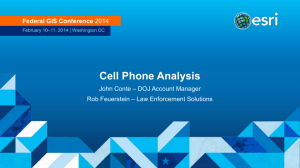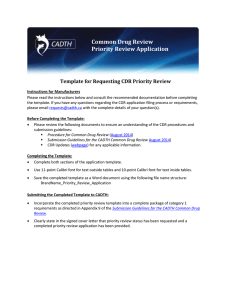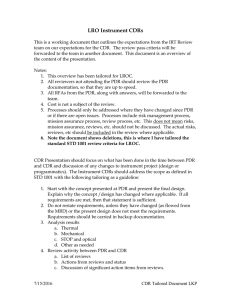The RD Exam – A Preparation Guide from an RD
advertisement
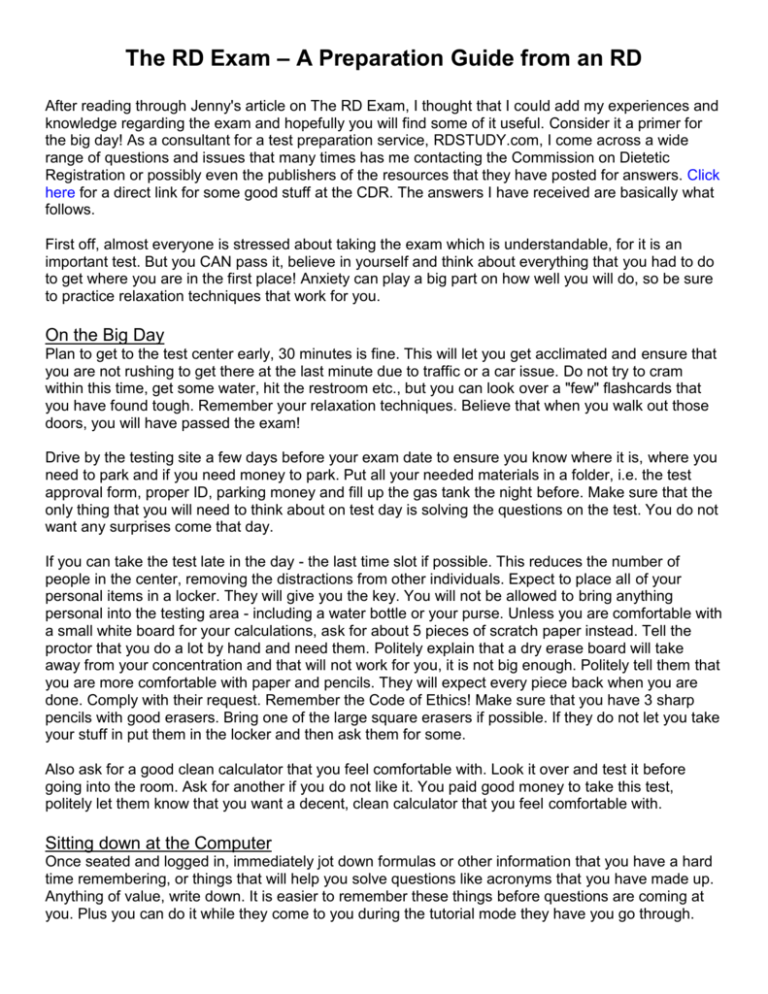
The RD Exam – A Preparation Guide from an RD After reading through Jenny's article on The RD Exam, I thought that I could add my experiences and knowledge regarding the exam and hopefully you will find some of it useful. Consider it a primer for the big day! As a consultant for a test preparation service, RDSTUDY.com, I come across a wide range of questions and issues that many times has me contacting the Commission on Dietetic Registration or possibly even the publishers of the resources that they have posted for answers. Click here for a direct link for some good stuff at the CDR. The answers I have received are basically what follows. First off, almost everyone is stressed about taking the exam which is understandable, for it is an important test. But you CAN pass it, believe in yourself and think about everything that you had to do to get where you are in the first place! Anxiety can play a big part on how well you will do, so be sure to practice relaxation techniques that work for you. On the Big Day Plan to get to the test center early, 30 minutes is fine. This will let you get acclimated and ensure that you are not rushing to get there at the last minute due to traffic or a car issue. Do not try to cram within this time, get some water, hit the restroom etc., but you can look over a "few" flashcards that you have found tough. Remember your relaxation techniques. Believe that when you walk out those doors, you will have passed the exam! Drive by the testing site a few days before your exam date to ensure you know where it is, where you need to park and if you need money to park. Put all your needed materials in a folder, i.e. the test approval form, proper ID, parking money and fill up the gas tank the night before. Make sure that the only thing that you will need to think about on test day is solving the questions on the test. You do not want any surprises come that day. If you can take the test late in the day - the last time slot if possible. This reduces the number of people in the center, removing the distractions from other individuals. Expect to place all of your personal items in a locker. They will give you the key. You will not be allowed to bring anything personal into the testing area - including a water bottle or your purse. Unless you are comfortable with a small white board for your calculations, ask for about 5 pieces of scratch paper instead. Tell the proctor that you do a lot by hand and need them. Politely explain that a dry erase board will take away from your concentration and that will not work for you, it is not big enough. Politely tell them that you are more comfortable with paper and pencils. They will expect every piece back when you are done. Comply with their request. Remember the Code of Ethics! Make sure that you have 3 sharp pencils with good erasers. Bring one of the large square erasers if possible. If they do not let you take your stuff in put them in the locker and then ask them for some. Also ask for a good clean calculator that you feel comfortable with. Look it over and test it before going into the room. Ask for another if you do not like it. You paid good money to take this test, politely let them know that you want a decent, clean calculator that you feel comfortable with. Sitting down at the Computer Once seated and logged in, immediately jot down formulas or other information that you have a hard time remembering, or things that will help you solve questions like acronyms that you have made up. Anything of value, write down. It is easier to remember these things before questions are coming at you. Plus you can do it while they come to you during the tutorial mode they have you go through. Take a few deep breaths and try to channel your nervous energy into solving questions. DO NOT RUSH! You do not need a perfect score. You just need to pass. If you feel too much anxiety while taking the test, get up and use the restroom or get a drink of water. You are allowed too. Take deep breaths as you walk. But remember the clock keeps ticking, and remember the Code of Ethics! The Questions By now you know that the CDR is "testing some of its questions" that are not graded as part of your test. In fact 1 out of every 4 of the first 100 will be one of these questions. If you get a question wrong during the first 100, do not sweat it. It has a 25% chance of not counting at all towards your grade. The key is to keep the anxiety low, and keep you mind clear. As Jenny's article points out, the test is very strict on the whole domain percentage thing. 12% Domain 1, 40% domain 2, etc. But because the CDR is testing questions, your test may not seem balanced in this way. But do not sweat it; if you get 4 or 5 FTE questions in a row for example, rest assured that chances are some of those are the CDR's non graded questions. You also will not get another question in the same area if you answered one wrong. That is simply NOT how the test works. Click here for more on this from the CDR. It may seem that way, but it is probably once again a CDR practice question, if you are still within the first 100 questions. At question 101, all questions are graded and count. Treat each question as if it were a trick question, look for such a possibility and then always choose the BEST ANSWER. That is big. Choose the BEST answer, meaning you may have two answers that are correct. One will be slightly better or answer the question more directly than the other. That is your BEST answer. In regards to trying to understand what they are asking for, read the last sentence of the question. In fact, you can start by doing that first. Then go back and read the whole question. Many times this will help you to understand what they want you to answer. Make sure that you look for the words NOT, FALSE, etc. Answer what they are asking you. As an example, how would you address a question that asks you for an item that is NOT CONTRAINDICATED? Lastly, keep in mind that less than 10% of the test will require any type of calculation. This is another fact stated on the CDR website. This includes simple calculations such as a simple addition problem. Most problems will not have you calculating lots of figures. This is not a math test. It is a test to see if you have the skills needed to be an entry level R.D. Lastly make sure that when you answer the question, you answer it in the units that they are requesting. Take your time and stay relaxed, but be mindful of the clock. Do not take too much time on any particular question. Worst comes to worst, bite the bullet, take a guess and move on. Hopefully you found some of this information helpful, and good luck on your big day! Rob Warns MS, RD, LD, CPT Lead Dietitian/Consultant www.RDSTUDY.com Please direct any questions or comments to webmaster@rdstudy.com


